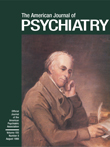Book Review Challenged
TO THE EDITOR: I do not ordinarily respond to psychoanalysts' adverse reviews of my published work; as a persistent critic of psychoanalytic instinct theory over the past 50 years, I have come to take such reviews for granted. Now, however, I find myself compelled to respond to the patent unfairness of Richard Chessick's appraisal (1) of the reissue of the 1968 volume of essays, Modern Psychoanalysis: New Directions and Perspectives (2), which I had the privilege of editing. Chessick makes the egregious error of comparing it to new editions of the Cecil Textbook of Medicine, as if Modern Psychoanalysis were presented as a textbook of psychoanalysis that needed periodic updating. In fact, the volume is a collection of essays by a group of distinguished contributors (many of whom, unhappily, have since died) who shared the conviction that much of psychoanalytic theory lacks a sound scientific basis and needs to be supplanted by newer concepts based on biobehavioral research findings. Because the critical ideas expressed by these authors continue to be highly relevant, Transaction Publishers considered the book worthy of reprinting as a contemporary classic.
The correctness of that decision is dramatically exemplified by Chessick's thinking, which conceals a resurgence of instinct-oriented theorizing clothed in “postmodern” seductive verbiage. Anyone who doubts this should read his article “Archaic Sadism” (2), in which he advances the astounding, totally unscientific, and unprovable thesis that “all humans are born with a primal biological archaic aggressive-destructive drive the gratification of which gives satisfaction just like the sexual drive.” If that is representative of the kind of psychoanalytic thinking that he favors, I can say only that it underlines the importance of calling the essays in Modern Psychoanalysis to the attention of the psychodynamically oriented members of our profession all over again.
1 Chessick RD: Book review, J Marmor (ed): Modern Psychoanalysis: New Directions and Perspectives. Am J Psychiatry 1996; 153:729–731Link, Google Scholar
2 Chessick RD: Archaic sadism. J Am Acad Psychoanal 1996; 24:605–618Medline, Google Scholar



